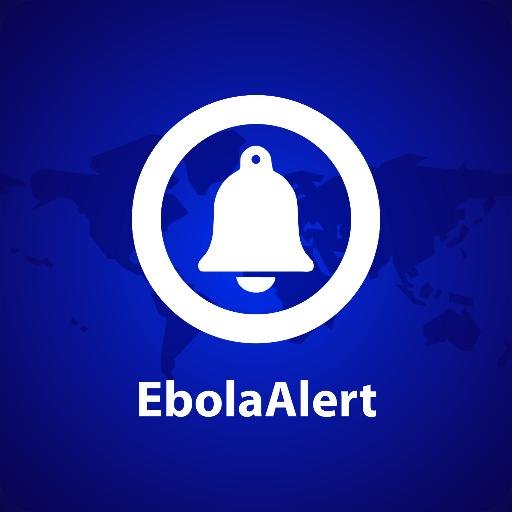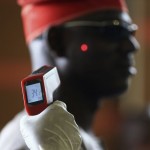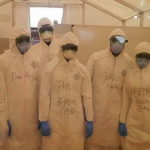Warning: Illegal string offset 'source_type' in /home/mychutej/public_html/blog/wp-content/plugins/egany-facebook-to-wp/egany_facebook_to_wordpress.php on line 1099
Nigeria’s response to Ebola in 2014 was recognised globally for its speed and efficiency. NCDC and its partners will leverage this successfully in its preparedness to prevent, detect and respond.
The Nigeria Center for Disease Control just released a statement outlining the agency’s preparedness plan to deter the introduction of the Ebola virus in Nigeria.
On the 12th of May 2017, the Nigeria Centre for Disease Control (NCDC) received formal notification from the World Health Organization of an outbreak of Ebola Virus Disease in the Democratic Republic of Congo (DRC).
As part of Nigeria’s immediate response, the Honourable Minister of Health, Professor Isaac Adewole, issued a statement over the weekend highlighting the need for citizens not to panic given the level of risk of possible transmission of the virus from the Central African country, DRC, to Nigeria. In his statement he stated: “Nigerians are urged not to panic as the Nigeria Centre for Disease Control is equipped to secure the health of citizens. The agency has for a while now, been strengthening states capacities to detect, manage and respond to haemorrhagic fevers including Lassa fever.”
Following this directive, the NCDC convened an emergency meeting with representatives from the Department of Public Health and Port Health Services of the Federal Ministry of Health, World Health Organisation (WHO), The United Nations Children’s Fund (UNICEF), US-Centers for Disease Control, the African Field Epidemiology Network and the University of Maryland Baltimore to guide the country’s preparedness activities.
At the meeting chaired by the Chief Executive Officer of the NCDC, Dr. Chikwe Ihekweazu, an Ebola Preparedness Working Group (EPWG) was set up to lead on the coordination of the immediate risk assessment of the situation in the DRC and coordinate the strengthening of prevention and preparedness for any potential introduction of the virus into Nigeria.
Related Article: 5 things Nigerians can do to Keep Nigeria Ebola Free
The risk of introduction of the Ebola virus into Nigeria is considered to be highest through its air and land borders. Therefore, Port Health Authorities have been advised to intensify existing screening procedures at all ports of entry with first responder teams being put on alert. In addition, there will be an increased focus on reinforcing principles of infection prevention and control to all healthcare workers across the country.
Nigeria’s response to Ebola in 2014 was recognize globally for its speed and efficiency. NCDC and its partners will leverage this successfully in its preparedness to prevent, detect and respond to the unlikely situation of the introduction of the virus to Nigeria.
WHO and other NCDC partners are committed to continued support to the country in its efforts to ensure its health security is protected.
In the coming weeks, the NCDC led Ebola Preparedness Working Group will provide regular updates as necessary on the outbreak in the DRC and provide information on how to protect ourselves and our country from Ebola.
The Nigeria Center for Disease Control













Leave a Reply